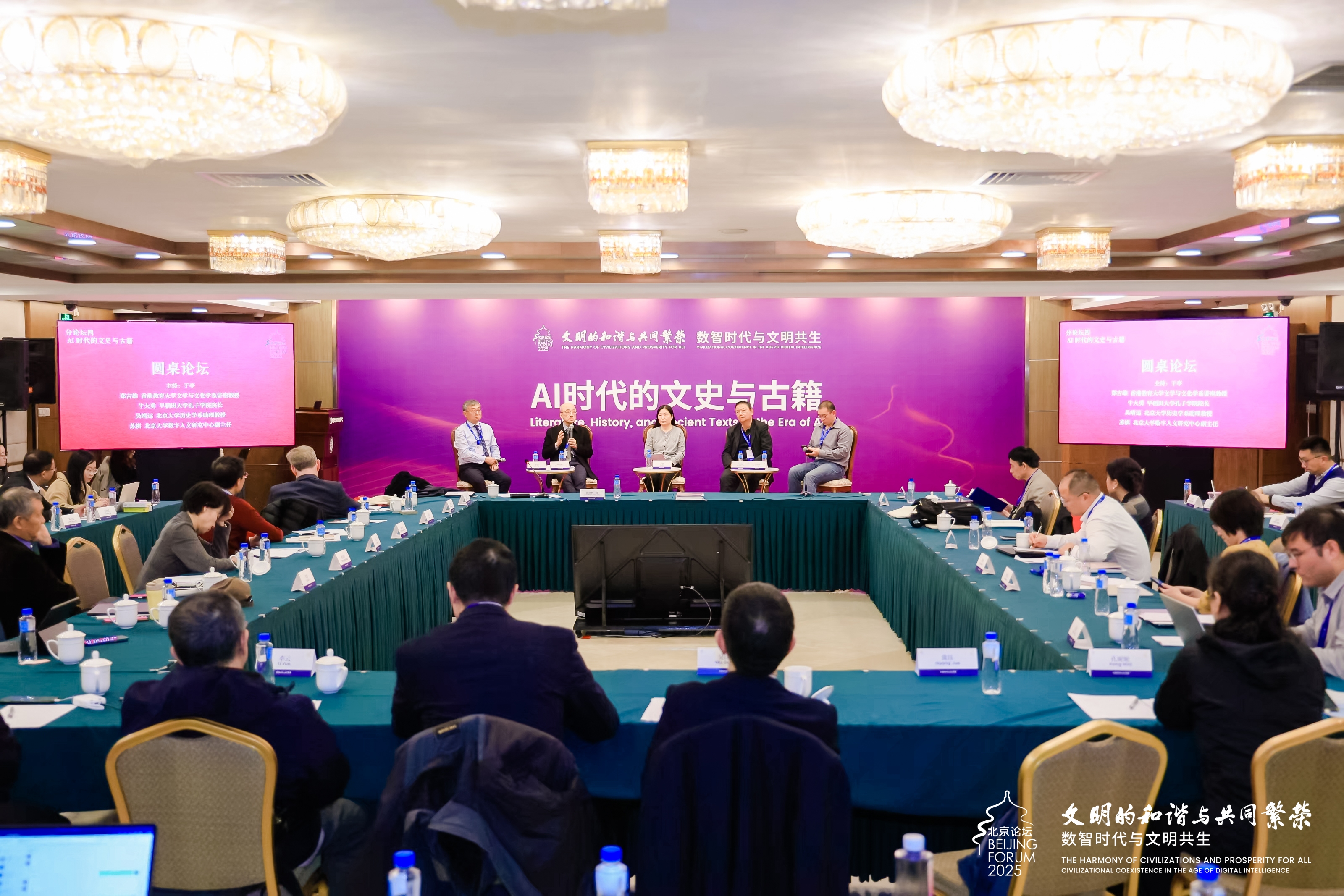 Peking University, November 12, 2025
Peking University, November 12, 2025: A panel session of Beijing Forum 2025 opened on November 8 with the theme of “Literature, History, and Ancient Texts in the Era of AI.” Global experts from prestigious institutions gathered at Peking University to debate on the topic of learning and working with AI.
Song Chen, Associate Professor of East Asian Studies, Bucknell University, opened the floor to conversation regarding the visualization of data from historical texts, with a focus on convenience and timeliness. To increase AI’s effectiveness, Chen denoted the fundamental difference between man and machine, suggesting an outcome-oriented method as opposed to a process-oriented method. This gave way to slight disagreements where Yuan Xiaoru, Executive Deputy Dean of the National Engineering Laboratory for Big Data Analysis and Applications, Peking University, voiced the need to curate data during the process, as being overly outcome-focussed may result in a model that does not understand the end product, thus possibly inhibiting the learning process for both man and machine.
“AI needs structural data,” said He Yan, Head of Chinese Section, Cambridge University Library. She amalgamated Chen and Yuan’s perspectives by proposing an alternative where AI, i.e. ChatGPT, is first used to generate metadata that in turn provides a basic framework and revision suggestions for more efficient data visualizations. The fruits of this unified metadata schema method were proved when the world’s first scanning and 3D printing of an Oracle Bone was successfully completed, providing a physical secondary artifact, reviving and globalizing ancient Chinese culture in today’s society.
The remarkable capabilities of AI when properly monitored, were further reiterated when Wang Jun, Dean of the Research Center for Digital Humanities and Professor of Information Management, Peking University, noted the speed and capacity at which AI was able to produce informational reports (approx. 100 pages in 30min). Not only can this cut labor costs, it also opens the door to new possibilities in the world of intertextuality between ancient Chinese literature and modern texts.
Closely related was discussion on the hermeneutical study of semantics, where Hu Renfen, Associate Professor of School of International Chinese Language Education, Beijing Normal University, presented AI’s role in creating a search engine platform to efficiently trace the gradual deconstruction of Chinese characters and the shifts in meaning behind them over time. This task was made possible by AI, especially “when manpower isn’t sufficient” said Li Feiyue, Professor of School of Humanities, Tsinghua University. Hence, properly utilizing AI can bridge the gap between ancient and modern worlds through the humanities.
However, amidst the excitement of potential yet to be uncovered, there is caution and open questions on the rapid development of AI. Is AI’s progress too fast? Will AI quash the humanities? What if it surpasses human intelligence one day?
In response, Yu Ting, Professor of School of Chinese Language and Literature, and School of Chinese Classics, Wuhan University, finalized the session with closing remarks, “In the face of AI’s advancement, we, as people, must always maintain our aesthetic consciousness, historical awareness, and individual disposition; we must look forward to the possibilities and dignity our personal experiences bring us, regardless of how imperfect we may be, as that is what makes us human.”
Written by: Maryann Yousheng Gou
Edited by: Chen Shizhuo
Photo by: Office of International Relations
